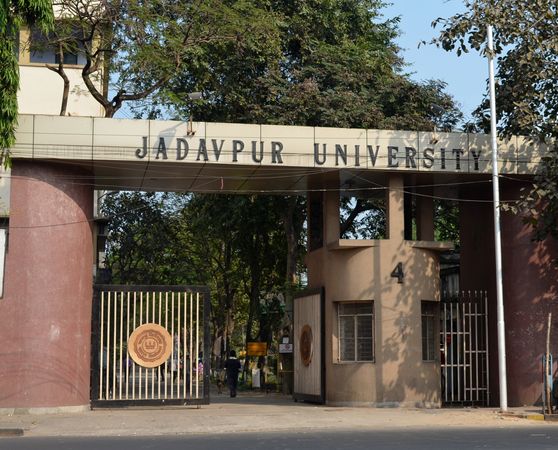Jadavpur University has constituted a committee to look into the “huge gap” in its income and expenditure and suggest measures to bridge the chasm, said a JU official.
The committee was constituted by the university’s finance committee, which in its last meeting held early September, flagged concerns about “the precarious fund situation and acute shortage of money”.
The committee will be chaired by Saikat Sinha Roy, a professor in the economics department.
Five teachers, at least one from each faculty, will be members of the committee.
The members would be nominated by the committee’s chairman, said an university official.
Sinha Roy said the first meeting of the committee would be held very soon and that they would submit a report at the earliest.
The resolution adopted in the last meeting of the finance committee said: “There is no development grant/support from the UGC (University Grants Commission), when we are in acute shortage of equipment and book grants for all the academic departments after 2017.”
The huge gap has also surfaced owing to depleting non-salary grants from the state government, says the latest report of the finance committee.
The report says over the past four financial years starting from 2018-19, they have run a deficit owing to the difference in the amount received from the state government and total actual expenditure.
“There is a regular practice of 10 per cent enhancement of grants which is not (being) followed.... On the contrary, the provision of 2022-23 in the state budget is reduced by 23 per cent, over the provision of the last year 2021-22,” the report mentions.
A JU official said this widening gap in the receipt of funds and expenditure pattern because of the decreasing support from the state government and the UGC, has forced the university to look for resource generation.
“The committee has been constituted to review the whole issue,” a finance committee member said.
The Telegraph reported on Saturday that the finance officer of JU has written in the university’s first newsletter that JU was facing an acute dearth of resources and the only option left for “resource generation” was increasing student fees.
Gour Krishna Pattanayak wrote that JU’s fees were the “lowest across all universities and institutes in the country” and have remained static since 2000.
“Although we have a few options, such as raising resources through consultancy and other ways, the growth of these is not very encouraging. The income from fees, which is at present, the lowest across all the universities and institutes in the country, can be a powerful source of revenue because of its multiplier effect,” Pattanayak has written.
The monthly tuition fees in the arts, science and engineering faculties are Rs 75, Rs 150 and Rs 200, respectively.
“Those whose family income is close to or above Rs 50,000 each month, should not have difficulty if the fees are reasonably raised. Else, we won’t be able to sustain as the fund support from the centre and the state are dwindling,” a senior JU official said.
